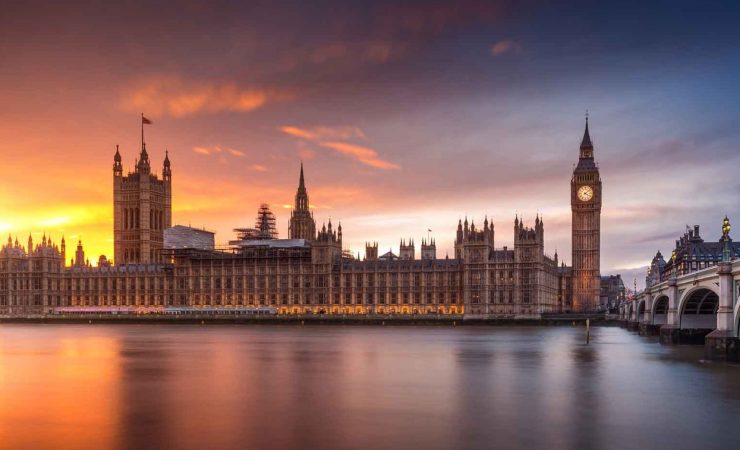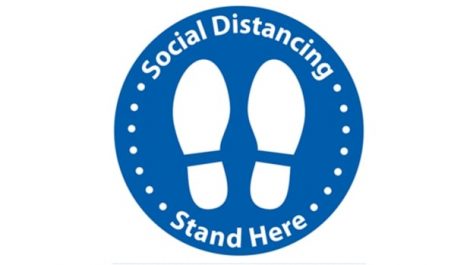The government’s support schemes have now been in place for several weeks, updated and extended and taken advantage of by countless companies. Digital, Labels and Packaging asked key figures in the sector what they thought of the schemes, as well as what they thought the economic impact of this crisis could end up being.
Since the Coronavirus outbreak struck the Government has gone to unprecedented lengths to try and protect the British economy as well as the people and companies that make it up. The Chancellor has introduced CBILS, the Furlough Scheme, changed bankruptcy laws and more.
Furthermore, lobbied by various industry bodies, Westminster has taken various steps to protect print specifically, including allowing print to remain open for business throughout.
The need to protect print seems obvious given that the UK’s print industry is the fifth largest in the world, with a turnover in the ballpark of £14 billion. Its approximately 112,000 employees are spread across 8000 different companies, meaning that each employs an average of 14 people. The Government knows this, but have its schemes gone far enough and is the industry satisfied with how they have been implemented?
IPIA
Brendan Perring, general manager of the IPIA, has been at the forefront of the fight to make sure print is protected during this crisis. His organisation, along with BAPC, called on members of the industry to contact the Government as part of an effort to influence its policy and secure special financial assistance for the print sector.
They then met with the Department for Business, Energy, and Industrial Strategy (BEIS) back at the end of March and were instrumental in ensuring that print could remain open for business. Most recently they announced that a subsequent meeting with BEIS had given them ’cause to be confident’ about the support the print sector will receive from Westminster.

Brendan Perring of the IPIA has liaised closely with government
‘The Government has listened to us,’ Mr Perring said. ‘They have been supportive and showed they understand the intricacies of the situation. They know that the money needs to come from somewhere, that it’s impossible to tailor solutions to every industry and certainly they’ve done their best.
‘I have heard some people criticising the Government because certain banks have been hesitant to loan money, or not provided favourable terms. Having dealt directly with BEIS I want to stress that this is a free country, the Government can suggest and ask, even threaten, but they cannot compel the banks to do anything.’
Leaving Westminster aside for the moment, Mr Perring has seen as much information as anyone when it comes to how the crisis is affecting companies in the print space. We asked him how he thought the industry might look when the pandemic is over.
‘There are going to be considerable changes to our industry,’ Mr Perring said. ‘Despite the Government’s support, and that support will allow thousands of companies to keep persevering, our information suggests that we will lose 1000 of the 8000 companies in print by the end of 2020.
‘SMEs are obviously the most exposed, but there will also be a huge impact on B2 printers who have already struggled to adapt to changes to the sector and the impact of things like Brexit. In short we are going to be left with a far more consolidated industry.’
This obviously makes harrowing reading for all of us, though Mr Perring does manage to find some silver linings on the storm clouds. ‘For a long time too many companies have been engaged in a race to the bottom when it comes to cost,’ he continues. ‘The ones doing this have made life very difficult for the others. I predict that the companies that survive this crisis best will be those who don’t focus on cost, but value, with print merely being the vehicle by which that value is delivered.
‘When all of this is over successful companies will be those that understand their client’s end goal and use the technology at our disposal to provide that, not just the ones who offer to do it for the least amount of money. In short, at least for the foreseeable future, we will be an industry of less volume, less price focused and far more consultative.’
BPIF
The BPIF has conducted its own surveys since the onset of the pandemic and CEO Charles Jarrold joined Mr Perring in praising the Government’s intent, though he was perhaps less pleased with the effect. ‘The crisis has put businesses under even more intense pressure, and while the government support schemes have helped considerably, they’re only partially effective in offsetting that pressure,’ Mr Jarrold explained.
‘Our survey reported very significant reductions in order levels. This work will come back, but maybe not immediately, or to previous levels. This additional pressure on businesses makes it likely that more companies will seek partners, either as acquirers or, as a means of exit, and we already know that’s taking place. Accessing finance to help those deals may however become more difficult, and lenders will be cautious. On a more positive note though, the crisis has encouraged companies to partner more, to share ideas and to have input into the business support processes. Along the way, these activities build business relationships which often lead to more formal activities such as mergers later on.’
When it come to the actual nuts and bolts of the schemes Mr Jarrold added, ‘Over the past few weeks we’ve been in constant contact with the Department for Business, Energy & Industrial Strategy (BEIS). They have really engaged and do understand the impact of COVID-19 on the print industry. We spent a great deal of time feeding back information about where support was needed, and then helping the sector understand that support.

The BPIF’s Charles Jarrold outlined the surveys his organisation has undertaken
‘Once the decision to significantly reduce economic activity was made by the government, they acted quickly to provide business support. This quick action has, at least for now, meant that significant business failures and job losses have been avoided. The furlough/Job Retention scheme was implemented quickly, trading flexibility for speed and it has, on the whole been successful. We would however like to see more flexibility in that scheme now that it is in place, allowing companies to bring staff back or swap them in and out of the scheme more rapidly. This would make the scheme more effective, and would probably also reduce the cost to government.
‘The business interruption loan scheme is well intentioned, but has been more problematic. There were a number of significant teething problems, especially around the ability of companies to access the scheme and the requirement for personal guarantees. Some of these problems have been addressed, but it’s still too lengthy and onerous for companies to access them. We also have major reservations about asking companies to take on more debt to help them with the costs of what is at its heart a public health problem. We would like to see more direct support. Finally, the ability to defer payments such as VAT have also helped with cash flow, although these will have to be paid at some point, and we’ve asked government to ensure that there isn’t a ‘cliff-edge’ deadline, which will then create a cash crunch.’
‘We know that the schemes have been vital in supporting the sector, and are currently undertaking our second detailed survey to get wider input into how well that support is working, and what happens next. In particular, our focus now is on what happens as the schemes are wound down. The JRS wind-down must be managed in a carefully staged process, so that, as demand comes back, staff can be brought back. If the scheme ends too quickly, the revenues will not be there to support those staff, and we would be very worried about the impact of that both on the staff and the business. We’ve fed that back to government and have been very clear about how those schemes can be managed effectively.’
Companies
That’s what the industry bodies have to say, but what about the companies that actually make up print? Almost all agreed that the economic fallout resulting from the Coronavirus would mean a significant uptake in mergers and acquisitions within the industry.
‘The post-pandemic world will present many opportunities across all economic sectors – including printing and packaging – as businesses adapt to the ‘new’ way of working and inevitable changes in consumer behaviour,’ said GMG’s Amy Young. ‘It is likely we will see a consolidation of businesses in our sectors where companies seek opportunities to scale or add specialist capabilities to their portfolios. As a result activity will increase as acquisitive companies seek to acquire under-valued or distressed assets. This activity may be disruptive in the short-term, however longer-term should result in a stronger, more consumer-driven industry benefiting everyone.’

The Government’s various support schemes have been introduced by Chancellor Rishi Sunak
Simon Cosh, digital business development manager for Dantex Group’s Pico range of digital inkjet presses thought that companies could grow as a result of this crisis. ‘Right now the markets are volatile and some people’s output has actually increased and investors will notice that. Perhaps parts of our industry that weren’t on the radar before are now, and vice versa.
‘Some companies that seemed very secure before the crisis will have suffered and may now be considering moving into new areas such as pharmaceuticals.’
When it comes to the responses coming out of Westminster, the response was overwhelmingly positive. ‘I do think the government has done a fantastic job as far as the economics go during this crisis,’ said Baker Label’s managing director. ‘The furlough scheme has saved thousands of jobs in the short term and given the majority of individuals confidence during this period. The loan scheme and grants are being made available at an unprecedented level, of course there will be criticism but trying to distribute such vast sums and ensuring the level of fraud is kept to a minimum is a job that I wouldn’t want responsibility for!’
Ian Woodhead, managing director at Anglia Labels agreed. ‘The policies have being implemented well and have been extremely useful.’ he told Digital Labels and Packaging. But Mr Woodhead did still have questions, ‘What we now need to know is what help will there be for companies once we come out of lockdown. If we have to make redundancies because of the virus, and through no fault of our own, will there be any help towards this? More importantly, to kick start the economy and help smaller businesses I think government should enforce all supplier payments should be made in 30 days, starting with the supermarkets.’
Amy Young also concurred that the efforts by the Government had been good ‘in principle,’ adying, ‘The CJRS has afforded many SMEs the ability to retain valuable staff members whilst supporting them financially as their cash flow positions deteriorate. The Scheme has been successfully implemented, however as with any stimulus package there are always areas for improvement.
There are of course many other financial stimulus packages available including CBILS, small business grants and deferral of VAT payments, all of which may support companies in the printing and publishing sector. The challenge is to read the fine print before deciding which of these may benefit your business.’
Mr Cosh was keen to stress that it was ‘very difficult for the Government to cover and support all areas – they can’t make everything of highest priority and some things unfortunately will slip through the net.’
He also suggested that the government may want to look at people working in those industries hardest hit (leisure, hospitality et al) and consider retraining programmes to work in sectors such as print for example. ‘A few years ago there was a funding programme for equipment where funding was made available linked to the employment of new staff. Programmes like that should be considered again.’






